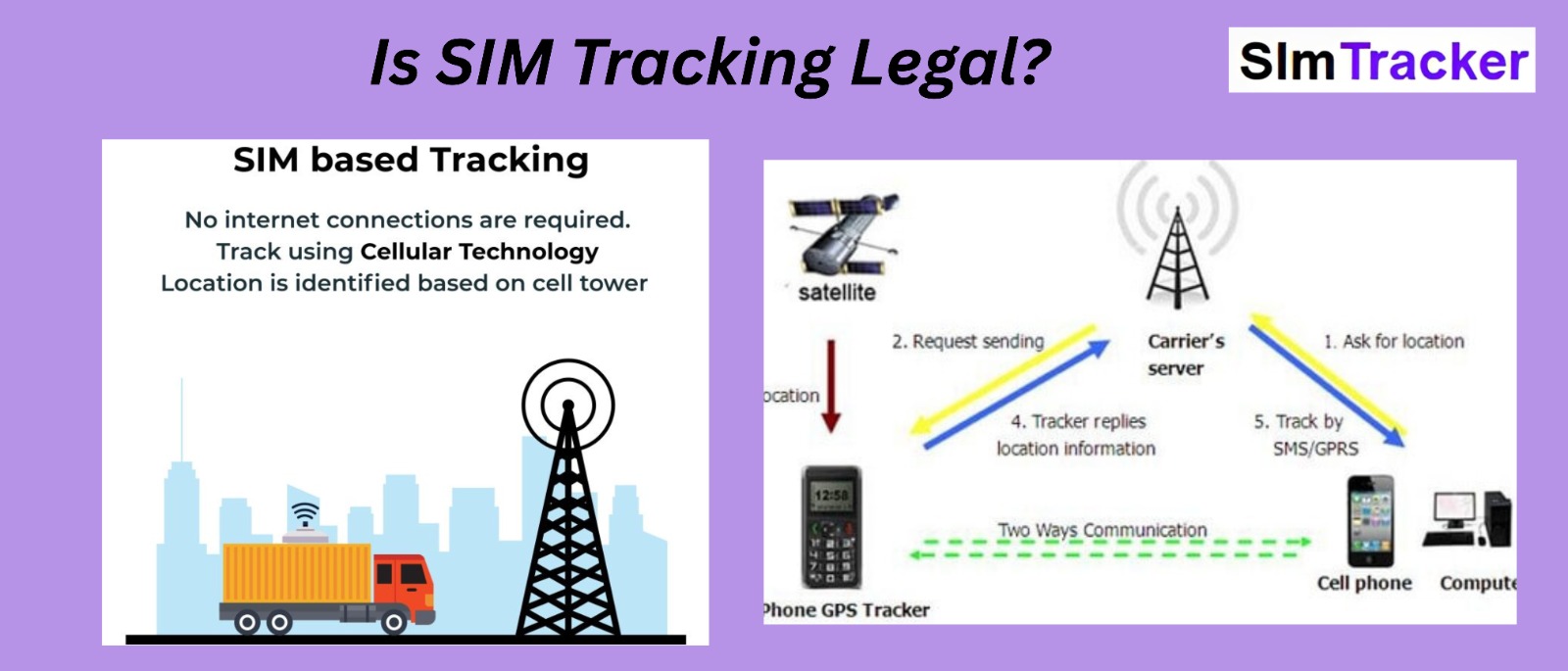Is SIM Tracking Without Consent Legal in Pakistan?
In an era where digital connectivity is everything, concerns around personal privacy and surveillance have skyrocketed. One of the most debated topics in Pakistan today is whether it's legal — or ethical — to track someone's SIM card without their knowledge. With cases of unauthorized tracking and surveillance surfacing more frequently, it's vital to understand the legal landscape surrounding SIM tracking without consent in Pakistan. This article explores what SIM tracking means, how it works, and what the law says about it in the Pakistani context.
Understanding SIM Tracking
SIM tracking refers to the process of locating or monitoring a mobile device using the SIM card's activity on a cellular network. It can include identifying a device's approximate location based on tower triangulation, monitoring usage, or even tracking call and message records. These SIM tracking methods vary in complexity — from basic tower-based location checks to advanced triangulation and GPS integration via telecom networks.
However, not all tracking is lawful. There’s a significant difference between authorized and unauthorized SIM tracking. Authorized tracking is generally carried out by law enforcement agencies or telecom regulators when there's a legitimate legal reason—such as a court order, FIR, or anti-terror investigation. Unauthorized tracking, on the other hand, involves someone monitoring another person's SIM activity without legal backing or consent. This type of tracking not only breaches privacy but also crosses legal boundaries.
Legal Framework in Pakistan
To understand the legality of SIM tracking, we must examine the country’s existing telecom and privacy regulations.
PTA Regulations
The PTA SIM regulations mandate that every mobile user in Pakistan must register their SIM card using their Computerized National Identity Card (CNIC). This is done to ensure user accountability and prevent misuse. While PTA enables users to check how many SIMs are registered against their CNIC, any tracking of a SIM's location or activity without lawful purpose is strictly prohibited.
PTA SIM Information System
Lahore High Court Ruling
A significant development came with the Lahore High Court SIM tracking ruling, which declared that extracting or using mobile data—including location, call logs, and SIM information—without the user's consent constitutes a violation of fundamental rights. This ruling reinforced that even state institutions must follow due process before accessing personal telecom data.
Personal Data Protection Bill
Pakistan's evolving digital laws further support individual privacy. The Personal Data Protection Bill Pakistan, currently under legislative review, outlines strict penalties for unauthorized access, sharing, or processing of personal data. It includes SIM tracking under its umbrella, reaffirming that personal location data cannot be accessed without user consent or legal authority.

Consequences of Unauthorized SIM Tracking
Engaging in unauthorized SIM tracking isn’t just unethical—it’s illegal and punishable under Pakistani law.
Legal Penalties
According to the Prevention of Electronic Crimes Act (PECA) and upcoming privacy legislation, any form of tracking without the subject's awareness or legal clearance could result in imprisonment, hefty fines, or both. These unauthorized SIM tracking penalties for knowing SIM owner details and tracking them apply to individuals, companies, or even private investigators who engage in surveillance without proper cause.
Privacy Violations
Beyond legal repercussions, unauthorized tracking violates privacy rights in Pakistan, which are constitutionally protected. Every citizen has the right to protect their digital footprint, which includes their location, identity, and communication. The use of hidden trackers or unauthorized apps to spy on someone’s SIM activity could severely infringe upon these rights.
How to Check SIM Ownership Legally
If you're concerned about a SIM card being misused or need to confirm ownership for security reasons, there are official, legal ways to do so.
Using PTA's 668 Service
The Pakistan Telecommunication Authority provides the 668 SMS service to help users identify the number of SIMs issued on their CNIC. Simply text your CNIC (without dashes) to 668, and you'll receive a list of registered SIMs.
Using SimOwners.info Services
For a more comprehensive check, SimOwners.info offers a suite of legal tools designed for SIM lookup, identity matching, and telecom data checks. You can verify which number is registered to which CNIC using these services.
These services are ideal for individuals who want to conduct a SIM ownership verification Pakistan check without engaging in any form of unauthorized surveillance.
Protecting Your Personal Data
With the rise of digital fraud and surveillance, protecting your SIM and mobile data is more crucial than ever.
Best Practices
To prevent unauthorized live SIM tracking, users should regularly audit the number of SIMs registered to their CNIC and deactivate any unused numbers. Additionally, use two-factor authentication on all accounts, avoid sharing personal info over unsecured apps, and enable phone locks and SIM PINs.
Reporting Violations
If you suspect that someone is tracking your SIM without consent, it’s vital to take action. You can file a complaint with the PTA or use online resources like SimOwners.info to log the incident. Always report SIM tracking violations to ensure digital accountability and discourage unlawful behavior.
Conclusion
As digital security becomes more vital in 2025, understanding your rights concerning SIM surveillance is essential. While technology offers powerful tools for location and identity verification, it must be used within legal boundaries. SIM tracking without consent in Pakistan is illegal unless authorized by law enforcement or under court orders. Always use legitimate methods for checking SIM ownership or suspicious activity, and report any misuse.